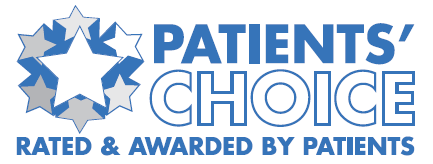Introduction
An anal abscess is a painful and potentially serious medical condition that affects the anal area. While it may be uncomfortable to discuss, understanding anal abscesses is essential for proper diagnosis and treatment. In this blog, we will explore the causes, symptoms, and treatment options for anal abscesses to provide you with the knowledge you need to address this condition.
 Causes of Anal Abscesses
Causes of Anal Abscesses
Bacterial Infection: The most common cause of anal abscesses is a bacterial infection. Bacteria from the skin or the digestive tract can enter the anal glands, causing an infection that leads to the formation of an abscess.
Anal Fissures: Small tears or fissures in the lining of the anus can create openings for bacteria to enter and cause an infection.
Obstructed Anal Glands: Anal glands normally secrete a lubricating fluid into the anus. When these glands become obstructed or clogged, they can become infected and lead to abscess formation.
Crohn’s Disease: People with inflammatory bowel diseases like Crohn’s disease are at a higher risk of developing anal abscesses due to the chronic inflammation in the digestive tract.
Weakened Immune System: Individuals with weakened immune systems, such as those with HIV/AIDS or on immunosuppressive medications, are more susceptible to infections that can lead to anal abscesses.
Symptoms of Anal Abscess
Symptoms of an anal abscess can vary in intensity, but they often include:
Pain and Swelling: The most common and noticeable symptom is localized pain and swelling around the anus.
Redness and Warmth: The area may appear red and feel warm to the touch due to inflammation.
Fever: Some individuals may develop a fever as the body tries to fight the infection.
Discharge: In some cases, a pus-filled discharge may be present, which can cause irritation and discomfort.
Difficulty Sitting or Moving: Pain and discomfort can make sitting, walking, or moving around difficult.
Diagnosis and Treatment
If you suspect you have an anal abscess or experience any of the aforementioned symptoms, it is crucial to seek medical attention promptly. A healthcare provider will conduct a physical examination and may perform additional tests, such as an ultrasound or CT scan, to confirm the diagnosis.
Treatment options for anal abscesses typically include:
Incision and Drainage: The primary treatment for an anal abscess involves a minor surgical procedure to drain the pus. This procedure can often be done in the doctor’s office or emergency room.
Antibiotics: In some cases, antibiotics may be prescribed to treat or prevent further infection.
Pain Management: Pain relief medications may be recommended to manage discomfort during the healing process.
Fistula Evaluation: After drainage, it’s essential to evaluate for a fistula, as treatment may be required to prevent recurrence.
Conclusion
While anal abscesses can be painful and uncomfortable, timely medical intervention is crucial for effective treatment and to prevent complications. If you suspect you have an anal abscess or experience symptoms, don’t hesitate to seek medical attention. Understanding the causes, symptoms, and treatment options for anal abscesses empowers you to take control of your health and address this condition with the help of healthcare professionals.
Note: One Stop Medical Center provides the service of anal abscess treatments. We have two office locations in Edina, Minnesota, and Casselberry, Florida. If you are interested in hemorrhoid care, Please fill out the online registration first, we will call you in 2 business days, or please call us at 1-888-992-0019 if any questions.
 Causes of Anal Abscesses
Causes of Anal Abscesses



